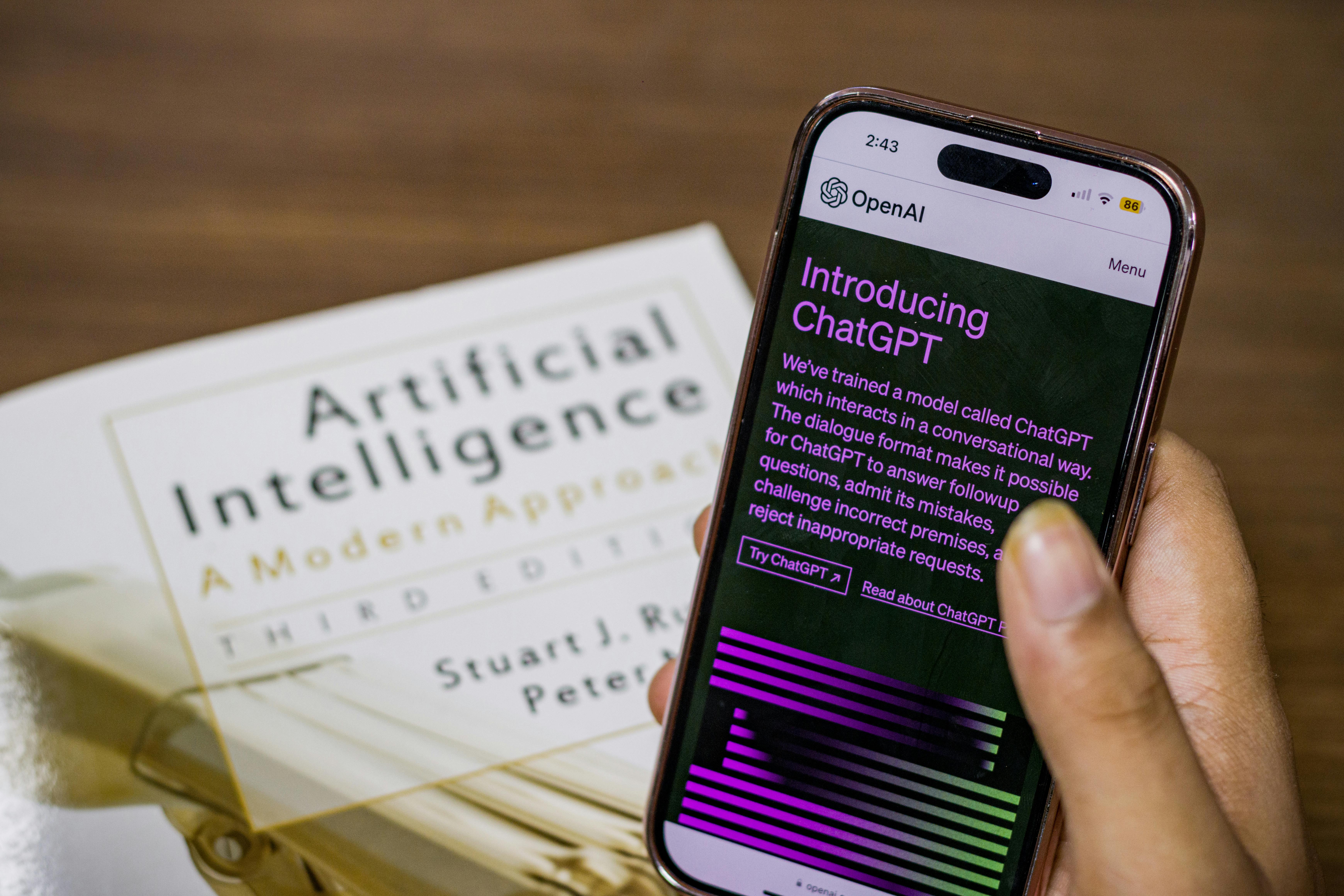Ai Driven Search Engine
Ai Driven Search Engine
• What is an AI Driven Search Engine?
• Benefits of AI Driven Search Engines
• Automated Categorization & Tagging
• Natural Language Processing for Queries
• AI-Powered Search Results
• How AI Improves Relevance of Results
• Autocomplete & Autosuggest Features
• AI-Driven Voice Search Capabilities
• Machine Learning for Improved Performance
• Personalized & Customized Results
Artificial Intelligence (AI) Driven Search Engines are becoming increasingly popular in the digital world. They enhance the ability to search for information online by using advanced AI algorithms to provide more accurate and relevant results. AI-driven search engines are designed to understand natural language and extract meaning from queries, allowing users to find what they are looking for faster and more accurately. Additionally, these AI-based search engines can also categorize and prioritize results based on relevance and importance, helping users quickly locate the most pertinent information they need.An AI Driven Search Engine is a type of search engine that uses artificial intelligence (AI) and machine learning algorithms to deliver more accurate and personalized search results. This technology can learn from user interactions to optimize search results, making it more efficient and effective than traditional search engines. AI-driven search engines can also provide helpful features such as natural language processing, automated categorization, and contextual awareness.
The Benefits of AI Driven Search Engines
AI driven search engines can provide many benefits to users, including improved accuracy and speed when searching for information. AI technology allows search engines to analyze user behavior, anticipate user needs and provide more accurate results. AI can also be used to detect and respond to changing trends in the market, providing users with the most up-to-date information. In addition, AI driven search engines can help reduce the time it takes to find relevant results, as well as reduce the amount of irrelevant results that are displayed. This makes it easier for users to quickly find what they are looking for.
AI driven search engines also have the potential to improve user experience by providing personalized content based on individual preferences. For example, a user who is looking for a particular product may receive recommendations based on their past searches and browsing history. This can help them find the exact product they are looking for quickly and easily rather than having to search through numerous irrelevant results. Additionally, AI technology can be used to detect and respond to changes in customer preferences, ensuring that users always receive the most relevant content when they search for something online.
Finally, AI driven search engines can help improve security by detecting malicious activity such as phishing or other cyber attacks. By analyzing user behavior, AI technology can identify suspicious activity and alert administrators so that they can take appropriate action. This helps protect users from fraudulent activity while still allowing them to find what they need online quickly and safely.
Overall, AI driven search engines offer many benefits for both businesses and consumers alike. From increased accuracy and speed when searching for information, to improved security measures against cyber attacks, AI technology is revolutionizing the way we search online.
What is Automated Categorization & Tagging?
Automated categorization & tagging is an advanced technology used to classify large amounts of data. This technology uses complex algorithms to automatically assign categories and tags to data. It is mainly used in the field of natural language processing, image processing, and machine learning. This technology helps organizations to better organize their data and make it easier to retrieve. Automated categorization & tagging also makes it easier for users to search for specific information quickly and efficiently.
Benefits of Automated Categorization & Tagging
The main benefit of automated categorization & tagging is that it helps organizations save time in manually organizing their data. By using this technology, organizations can quickly and easily categorize large amounts of data into various categories or tags. This makes it easier for them to find the required information in a much shorter time. Additionally, automated categorization & tagging reduces the risk of mistakes caused by human error while organizing the data. Furthermore, it improves the accuracy of search results as the system can accurately detect patterns in the data and assign appropriate categories or tags accordingly.
Applications of Automated Categorization & Tagging
Automated categorization & tagging has a wide range of applications across different industries. It can be used in customer relationship management (CRM) systems to help organizations better understand their customers’ needs and preferences. It can also be used in text analysis applications such as sentiment analysis, which helps businesses gauge customer feedback on a product or service more easily and accurately. Moreover, this technology can be used in content classification systems which are used by media companies to classify large amounts of content into various categories for easy retrieval.
Overall, automated categorization & tagging is an incredibly useful technology that can help organizations save time and resources while organizing their data more efficiently and accurately.
Natural Language Processing for Queries
Natural Language Processing (NLP) is a powerful tool used to transform human language into a structured form that can be understood and analyzed by a computer. It is a key component of many modern applications such as search engines, voice assistants, chatbots, and more. NLP enables users to interact with computers in a more natural way, allowing them to ask questions and receive answers in their own language. NLP is especially useful for complex queries where traditional keyword-based search may not yield accurate results.
NLP works by breaking down the query into individual words or phrases and then applying semantic analysis to determine the user’s intent. This process helps to identify the most relevant results from large datasets. NLP also allows for the incorporation of context into the search query, which helps to ensure that the results are more accurate and tailored to the user’s needs.
In order to provide accurate results, NLP relies on various algorithms and techniques such as machine learning, deep learning, natural language understanding (NLU), natural language generation (NLG), semantic analysis, and more. These algorithms help to interpret user queries in order to extract meaning from them and provide relevant results.
NLP has become an essential tool in many industries today, allowing them to provide more efficient customer service and improve their overall operations. By leveraging NLP technology, businesses can quickly identify customer needs and provide faster responses while also reducing costs associated with manual data processing tasks. In addition, companies are now using NLP for predictive analytics purposes, which allows them to gain insights into customer behavior that would otherwise be difficult or impossible to obtain through traditional methods.
Overall, Natural Language Processing is an important tool that enables businesses to better understand their customers’ needs while providing faster response times at lower costs. By leveraging advanced algorithms and techniques such as machine learning or deep learning, businesses can gain valuable insights into customer behavior while also improving customer service efficiency at the same time.
AI-Powered Search Results
Searching has become an integral part of our daily lives, and with the advent of artificial intelligence (AI), it’s become even more powerful. AI-powered search results can help you find precisely what you’re looking for faster and easier. AI-powered search results are tailored to your individual needs, taking into account your past search history, preferences and other data points. This helps refine the search results so that they are more accurate and relevant to your needs. Additionally, AI-powered search results can be used to predict what type of content you might be interested in based on your previous searches or other data points.
AI-powered search results can also provide helpful features such as autocomplete, which fills in words or phrases as you type them into the search box. This helps save time and effort by reducing the amount of typing needed for a query. Another feature is suggested searches, which suggests related queries as you type out a query. This helps refine your query so that it produces more accurate results.
The use of AI in search engines continues to evolve, with new technologies being developed all the time that allow for even more precise and personalized searches. As technology advances, AI-powered search results will only become more powerful and useful to users who need to quickly find relevant information from a large collection of data.

How AI Improves Relevance of Results
AI technology has revolutionized the way we search for information online. With its ability to learn, analyze, and interpret data, AI can make searching more accurate and efficient. By leveraging its capabilities, AI can improve the relevance of search results by providing more accurate and relevant results. This means that users can find what they’re looking for faster and with fewer clicks.
AI-driven search algorithms are able to assess the context of a query to determine the most relevant results. For example, if someone is searching for “vacation destinations”, an AI-powered search engine might consider their location or preferences in order to provide more relevant results. It can also consider previous searches or past activity to understand user intent better and deliver more targeted results that are tailored to each individual user’s needs.
By utilizing natural language processing (NLP) technology, AI-driven search engines are able to understand certain nuances in language that a traditional search engine may not pick up on. For example, NLP allows a search engine to recognize synonyms and related terms when interpreting a query, making it easier for users to get the right results without having to use specific keywords. Additionally, NLP enables searches to become more conversational so users can ask questions in plain language instead of having to use specific keywords or phrases.
AI also makes it possible for search engines to look beyond simple keyword matching and understand user intent better by analyzing the context of queries. This enables them to provide more accurate and relevant results than traditional keyword-based searches as well as offer personalized recommendations based on user behavior and interests.
By leveraging its capabilities, AI can make searching easier and more efficient by providing users with more accurate and relevant results faster than ever before. This will not only save time but also help people find what they’re looking for in fewer clicks, making searching smoother and more enjoyable overall.
Autocomplete and Autosuggest Features
Autocomplete and autosuggest features are becoming increasingly popular among web developers. Autocomplete and autosuggest are user interface (UI) features that provide users with a list of suggested input options as they type in a text field, such as a search box. Autocomplete can help reduce the amount of typing needed to enter data and improve accuracy by suggesting words or phrases from a predefined list. Autosuggest can be used to suggest content that is related to the user’s query.
Autocomplete and autosuggest features are great for providing quick access to relevant information. They also help reduce user fatigue by making it easier for users to find what they’re looking for. This is especially beneficial for mobile applications, where typing on a small keyboard can be tedious.
When designing an autocomplete or autosuggest feature, it’s important to consider how the feature will work in different browsers and devices, as well as how it will interact with other UI elements on the page. Developers should also consider using caching techniques to improve performance, such as loading data in advance or pre-fetching suggested results when possible.
In addition, developers should think about how they can make their autocomplete or autosuggest feature more accessible. This includes ensuring that screen readers can properly read out suggestions, providing enough time between keystrokes so that users with motor impairments can use the feature, and giving users more control over their input by providing a clear way to delete previous entries.
Overall, autocomplete and autosuggest features provide great value for users by reducing the amount of typing needed to enter data into forms and search boxes. They also help reduce user fatigue by providing quick access to relevant information. With careful design considerations, developers can create an efficient and accessible autocomplete or autosuggest experience for their users.
AI-Driven Voice Search Capabilities
Voice search is becoming increasingly popular as advancements in artificial intelligence (AI) allow for more natural language processing. AI-driven voice search capabilities enable users to quickly and easily find the information they need without needing to type out long search queries. This technology can greatly reduce the amount of time it takes to find what you’re looking for, making it a powerful tool for businesses and consumers alike.
AI-driven voice search technology is based on natural language processing, which means that it can interpret spoken commands and queries in order to deliver accurate results. This allows users to quickly and easily find what they’re looking for without having to type out long search queries. The technology also uses machine learning algorithms that are able to understand context and recognize patterns, allowing it to pick up on subtle nuances in speech that may not be easily understood by humans.
The use of AI-driven voice search capabilities has many advantages for businesses. For example, it can help businesses increase online visibility by providing customers with more accurate and relevant results when they use voice search. It can also help businesses better understand their customers’ needs by analyzing the data collected from their searches, which can then be used to tailor marketing campaigns or product offerings accordingly.
In addition, AI-driven voice search capabilities can also make customer service easier and more efficient. By understanding customer queries in a more natural way, customer service agents are able to provide quicker responses with greater accuracy. This improves customer satisfaction and loyalty, leading to increased sales and profits for businesses in the long run.
Overall, AI-driven voice search capabilities are a powerful tool that enable users to quickly and easily find what they’re looking for with minimal effort. Businesses can benefit from this technology by improving their online visibility and better understanding their customers’ needs, while providing customers with a more efficient customer service experience at the same time.

Conclusion
AI-driven search engines are a powerful tool for improving search engine efficiency and accuracy. AI-driven search engines are becoming increasingly popular among online users, as they can provide more relevant and accurate results in less time. AI-driven search engines can also help to improve user experience by providing personalized results. This improved user experience leads to higher customer satisfaction and loyalty.
AI-driven search engines make it easier to find the information that users need, which helps them make better decisions and get more out of their searches. AI-driven search engines are also becoming increasingly popular in industries such as healthcare, finance, e-commerce and retail, where they can provide improved insights into customer behavior and enable businesses to better understand their customers’ needs.
Overall, AI-driven search engines have the potential to revolutionize the way people use the internet. As more companies begin to recognize the advantages of using AI-driven search tools, this technology will become even more widely used.
Check out this amazing AI Driven Search Engine tool: https://www.moderndata.ai/products/search



